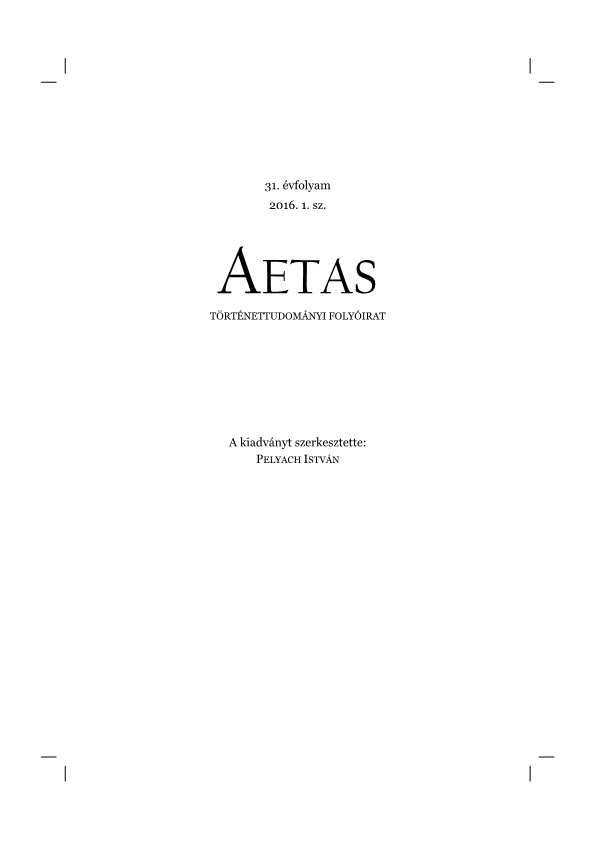Küzdelem az arénában. Az erőszak szerepe a magyar parlamenti politizálásban a dualizmus korában
Fight in the arena. The role of violence in Hungarian parliamentary politics during the dual monarchy
Author(s): András CiegerSubject(s): 19th Century
Published by: AETAS Könyv- és Lapkiadó Egyesület
Summary/Abstract: The paper seeks to answer the following questions. Can the change observed by the people living at the time, namely that parliamentary politics became more violent in the decades following the Austro-Hungarian compromise of 1867, be proven? And if so, what factors can explain this, and to what extent can it be regarded as a typical Hungarian phenomenon? First, the author analyzes the criminal offenses committed by the members of parliament, looking at the growing number of immunity cases. He points out that during the five decades examined it was mainly the number of duels as well as cases of defamation and slander that increased, which is attributable to political fights getting more intense on the one hand, and to the structural transformation of publicity and the change of how politicians worked on the other. Then, using hitherto unexploited sources, the author presents those turning points in the history of the Hungarian Parliament, which indicate significant changes related to the extent of public aggression. In the life of the Hungarian house of representatives violence manifested itself in rather diverse forms: from verbal aggression (such as using expression of insult) through various obstruction techniques (making a noise, shouting, obstructing clerks, etc.) to physical violence (fight, damaging) and even attempted murder. Finally, the author points out that we can observe similar phenomena in other European countries as well, but there physical violence mostly remained outside the walls of the parliament (for example, demonstrations, assassinations) and the perpetrators were usually not members of the political elite. But in the two capitals of the Austro-Hungarian Monarchy violent obstruction paralyzing legislative work was strikingly common. In Vienna and Budapest–even though for different cases, but ultimately due to the incapability of the political system to undergo reforms–verbal and physical violence became an organic part of parliamentary politics. We can observe deep mistrust among the different political groups, and, at the turn of the century, it was already the inability to compromise that paralyzed the operation of the two legislative assemblies.
Journal: AETAS - Történettudományi folyóirat
- Issue Year: 2016
- Issue No: 1
- Page Range: 102-131
- Page Count: 30
- Language: Hungarian

